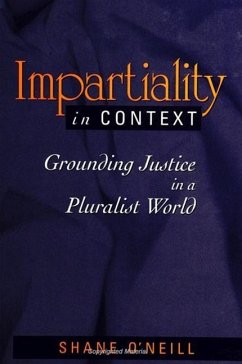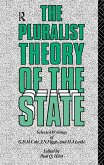Assesses critically the work of Rawls, Walzer, and Habermas and presents a theory of justice that responds to two senses of pluralism. In this book, Shane O'Neill argues that the theory of justice must take seriously two dimensions of pluralism in the modern world. While it must acknowledge the plurality of individual conceptions of the good that is characteristic of every modern society, it must also reckon with the plurality of historically unique, culturally specific, political societies. O'Neill offers a distinctive perspective on an extremely significant current debate about universalism and particularism in political philosophy. Justice, he maintains, must be understood both in terms of an impartial point of view that respects differing conceptions of the good and in relation to the particular contexts in which disputes about norms and principles arise. Liberals, most notably John Rawls, have tended to privilege the former aspect of justice, while communitarians, especially Michael Walzer, have stressed the latter. O'Neill shows how Habermas's discourse ethics can overcome the limitations of these alternatives by providing theoretical tools that allow us to ground impartiality in particular contexts. This position is developed through an exploration of the complementary roles of moral and ethical discourses and an application of the theory to the political conflict in Northern Ireland. This careful and detailed philosophical argument offers a valuable critical introduction to a range of important topics, including the communitarian critique of liberalism, feminist perspectives on justice, the interpretive turn in political philosophy, the theory of communicative action, the dynamics of a discursive democracy, and the politics of recognition.
Hinweis: Dieser Artikel kann nur an eine deutsche Lieferadresse ausgeliefert werden.
Hinweis: Dieser Artikel kann nur an eine deutsche Lieferadresse ausgeliefert werden.








